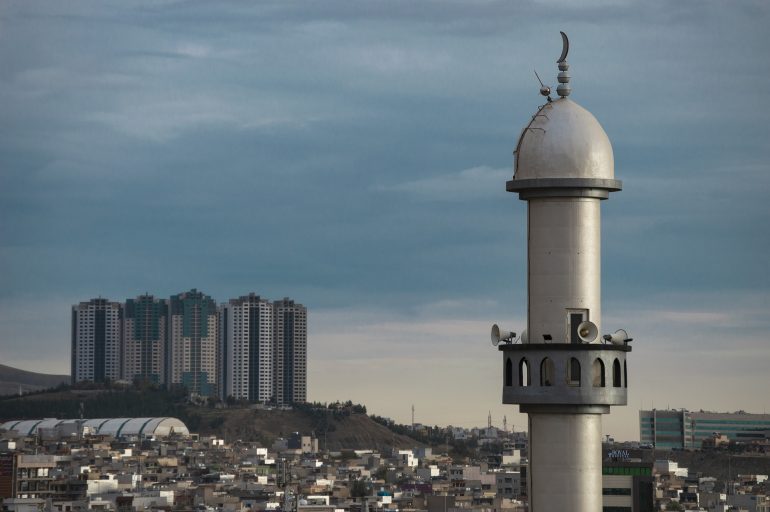The political landscape in the Kurdistan Region of Iraq is becoming increasingly fragmented and complex. Recent tensions between the Kurdistan Democratic Party (KDP) and the Patriotic Union of Kurdistan (PUK) risk becoming a full-blown crisis and have led to a political deadlock, exacerbating financial difficulties and creating noticeable spikes in security incidents.
After deciding to boycott KRG cabinet meetings, the PUK has stepped up its political maneuvers against its rival, the KDP. On Saturday, they announced plans to seek an agreement between Sulaymaniyah and Baghdad if their issues with the KDP in Erbil remain unresolved. Talabani has reportedly presented a list of 10 conditions required for the PUK to rejoin the cabinet, highlighting the most significant challenges in PUK-KDP relations.
The PUK’s conditions for rejoining the KRG cabinet include: restoring all powers to Qubad Talabani, the deputy prime minister, and broadening the authority of PUK ministers.
Additionally, they demand the creation of a joint committee involving the ruling KDP, the PUK, and allied forces to address the controversial issue of Hawkar Jaff’s killing.
Lastly, the PUK seeks to end the ‘financial embargo’ on Sulaymaniyah, as the province has not been receiving its fair share of Kurdish oil revenues.
Samir Hawrami, spokesperson for Qubad Talabani, deputy prime minister of the Kurdistan Region and a PUK member, told media outlets that they have submitted a plan to address Sulaymaniyah and Halabja’s financial issues to the KDP-led government over seven months ago but have not received any response.
“If the situation doesn’t improve, we plan to reach an agreement with Baghdad to free the Sulaymaniyah administration from oppression,” he emphasized.
Last Thursday, a high-level delegation led by Rafat Abdullah, a decision-maker in the Political Bureau, visited Baghdad and met with major Iraqi political parties. Their main objective was to request that Iraqi authorities consider Sulaimaniyah’s independent financial situation in the federal budget bill, separate from Erbil, according to two sources within the PUK.
Bryar Rashid, a member of the PUK bloc in the Iraqi parliament, told NRT English that they have begun political efforts with their Iraqi allies, particularly the Shia parties, to establish an agreement that would enable the direct allocation of Sulaimaniyah’s portion of the budget, bypassing Erbil. “We’ve experienced a lot of injustice from Erbil, and they’ve lost our trust,” he said.
According to the budget bill approved on March 13 by the Iraqi prime minister and submitted to the parliament, all KRG shares are sent directly to Erbil as a single entity. The KRG prime minister holds the exclusive right and authority to distribute these shares among the provinces: Erbil, Sulaimaniyah, and Duhok. Iraq assigns shares for Halabja within Sulaimaniyah’s allocation since Halabja’s status as a province has not yet been formalized. The KRG would distribute Halabja’s share from the overall KRG allocation.
Rashid noted that once a political agreement is reached, they will engage in parliamentary debates to incorporate it into the budget bill.
However, according to two anonymous sources, one of whom was present at the meeting, Iraqi Prime Minister Mohammed Shia’ al-Sudani asked members of the Iraqi Parliament’s finance committee to maintain the existing article related to the Kurdistan Region’s share of the federal budget bill for 2023-2025 without any changes to allocations. This meeting took place before Eid al-Fitr.
The Iraqi premier emphasized that the allocated percentage for the Kurdistan Region in the new budget bill is 12.6%, and the region will be treated as a single constitutional entity, not as separate provinces.
A lawmaker in Baghdad who spoke to NRT English stated that the Shia parties have discussed the proposal internally but have not reached a consensus, with some opposing the idea.
“We haven’t encountered any opposition or objection from the Shia parties regarding this initiative, but the discussions are ongoing, and we will update the public once the process is finalized,” Rashid explained.
Rashid stressed that their only demand is fairness in budget distribution, and anyone opposing this effort is essentially supporting budgetary injustice.
NRT English reached out for comments from Shakhawan Abdullah, second deputy speaker of the Iraqi Parliament; Vian Sabri, leader of the KDP bloc in the Iraqi Parliament; and Vian Dakhil, spokesperson for the KDP bloc. No responses were received.
This move by the PUK, if not merely an attempt to gain leverage, could shift the balance of power from favoring the Kurdistan Regional Government (KRG) to leaning towards Baghdad, potentially putting the Kurdistan Region’s constitutional status in Iraq at risk.
In a statement celebrating Eid Al Fitr, the Gorran movement, the third party in the KRG governing coalition, emphasized that “the highest interests of the people and the protection of the Kurdistan Region’s entity are more important than all internal conflicts,” hinting at the recent KDP-PUK tensions.
Adel Bakawan, a Kurdish political analyst and sociologist based in Paris, wrote an opinion piece entitled “No to Division of Kurdistan,” arguing that all parties must recognize that the international community sees them not as individual parties but as representatives of the constitutional and legal region of Kurdistan.
“Without the Kurdistan Regional Government, the doors of the White House, the Elysee Palace, and other international venues would not have opened for the Kurds in the same way,” he wrote.
An earlier version of this article had an incorrect spelling for Bakawan. We regret this error.


